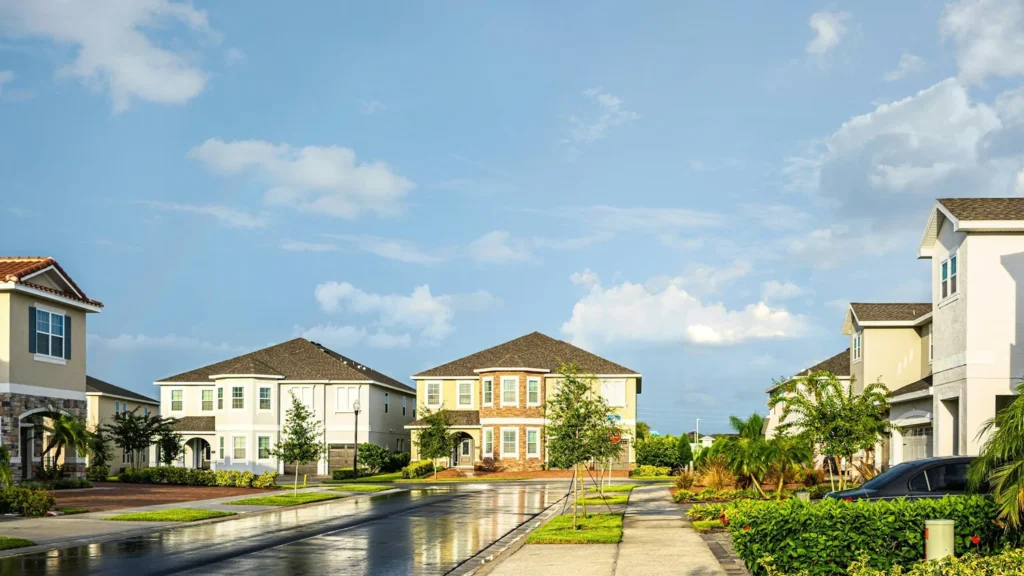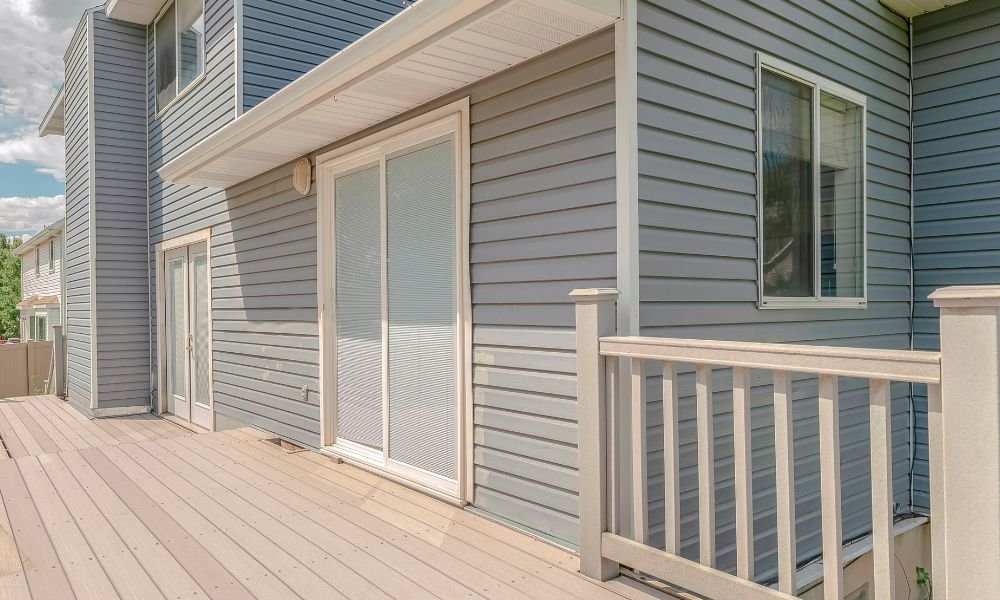The Psychology Behind Florida’s Love Affair With Security Communities

Florida has a curious gravitational pull. The air is warm, the lizards are unbothered, and the palm trees lean like they’ve seen things. People arrive here in waves – retired, relocating, reimagining something – and many of them land not just in homes, but in entire communities with gates, buzzers, and names that sound like skincare products: Sandhill Reserve, Cypress Waters, The Isles. This is not just urban planning. This is personal preference turned collective habit. Across the state, people are buying into a new kind of neighborhood. And that brings us to Florida’s love affair with security communities. It’s not a new concept, but Florida makes it feel like one. The fence isn’t just a fence. It’s a quiet message that says, “You’re safe now. Go ahead and unpack.”
From Noise to Stillness (With a Gate in Between)
Life in a Florida security community often begins as a practical decision. You need more space. A yard. A driveway where your car doesn’t have to fight for space between two oversized trucks. So you move. Simple.
However, moving from an apartment to a house does something else, too. It clears out a type of noise you didn’t realize was there. Burnt bagels in other units triggered the fire alarms? Gone. The neighbors with heavy steps and louder phones? Also gone.
What replaces it isn’t always easy. Silence is its adjustment. You have to prepare for the change when moving from an apartment to a house in Florida. Not just the physical relocation, but the subtle emotional recalibration that happens when you go from shared chaos to structured calm.
Additionally, security communities are designed to catch you in that moment. The HOA rules? The welcome email with twelve PDFs? Those aren’t paperwork. They’re transition tools. They teach you how to live in this new kind of order.
Even the street names cooperate. Tranquility Cove. Reflection Pointe. Serenity Bay. These aren’t places. They’re instructions.
Apartment-to-house moves are tricky – Florida’s security communities make them feel easy.
Predictability Feels Like Safety
What people often want from security isn’t protection from danger. It’s protection from randomness.
Gated neighborhoods offer a kind of pre-programmed predictability. Trash comes on Tuesday. Deliveries are logged. Strangers are noticed. Your neighbor’s grass looks just like yours, which tells you everything is still fine.
Furthermore, that sense of order lowers the mental background noise. You don’t worry about package theft or wonder if someone left their shopping cart in your driveway. You develop a rhythm, and that rhythm does something comforting to your brain.
Florida, more than most states, thrives on transitions. People come here to retire, to start over, to raise families. They are looking for something softer around the edges. And a security community offers that. You don’t have to re-learn how to be a neighbor. There’s already a handbook.
So instead of feeling disoriented in a new place, you end up feeling like you’ve entered a system that knows what to do with you.
Collective Identity, Cul-De-Sac Edition
Inside the gates, something subtle happens. You start to resemble the place you moved into.
It’s not immediate. But slowly, your patio chairs match the ones next door. Your Halloween decorations hit the same note as your neighbors’. Your car isn’t just parked – it belongs.
Security communities foster this through visual repetition. Same trees and mailbox. Same power-washed driveways. People unconsciously calibrate to the environment, and that includes social cues.
You wave more often, and you pause longer to chat. You start asking questions about fertilizer, even if you never cared about lawns before.
This isn’t conformity. It’s reinforcement. The community teaches you how to be a version of yourself that fits. And in a state filled with new beginnings, fitting in is part of the appeal.
Additionally, you don’t have to build a new identity. You can step into one that’s been carefully arranged for you, trimmed with hedges and lined with speed bumps.
Inside Florida’s security communities, fitting in comes easily.
The Work Behind the Calm
What outsiders don’t see is how much effort goes into the illusion of peace.
There are emails. Meetings. Fines for leaving trash cans out too long. Some residents join boards and committees. Some lead landscaping walks, clipboards in hand. The structure isn’t accidental. It’s managed.
And that sense of management builds emotional security. If something’s wrong, there’s a number to call. A gate to close. A rule to refer back to.
This comfort in procedure appeals to a certain kind of psychology – the kind that finds calm in systems. The type that likes knowing what the speed limit is and what shade your shutters must be.
People laugh about it sometimes. The pettiness. The bylaws about bird feeders. But underneath the jokes is a shared agreement: this is how we keep the place feeling safe.
And safety, even when it’s self-imposed, can feel like a form of belonging.
The Appeal Has Layers
Not everyone in Florida chooses a security community. But those who do often stay longer than they planned.
For families, these neighborhoods offer parks, sidewalks, and that one neighbor who always bakes too much. For retirees, the benefits are more subtle: less maintenance, fewer surprises, and the gentle assurance that someone will notice if your garage light hasn’t turned on in a few days.
There’s also something oddly futuristic about them. They feel engineered and optimized for civility. Less small town, more simulation – like a quiet beta version of how human behavior could work if everyone just agreed to stop being chaotic for five minutes.
Florida’s love affair with security communities continues to grow, not because people fear danger, but because they fear disorder. A gated neighborhood offers the suggestion that life can be edited down to just the good parts.
No blaring music at 2 a.m. No arguments in the parking lot. Just sidewalks, trimmed trees, and the occasional awkward HOA meeting about someone’s pink flamingo collection.
The Long Game
Florida is still building and still expanding. And the blueprints often include gates.
Security communities aren’t a niche anymore. They’ve become the default in many new developments. Young families want them. Remote workers wish to them. Retirees never stopped enjoying them.
Developers know this. So do real estate agents. They don’t just sell square footage anymore. They sell the feeling that your neighborhood will behave itself.
That’s the hook. Not granite countertops or open-concept kitchens. Those come and go. What remains is the sense that your home exists inside a system that has already solved most of the problems.
And in a state with storms, wild headlines, and very unpredictable reptiles, there’s something to be said for a place that never surprises you.
Florida’s love affair with security communities isn’t about locking the world out. It’s about locking a certain version of life in. One with trimmed hedges, scheduled power washing, and the collective agreement that calm, even if artificially constructed, is better than chaos left to roam.
Keyphrase: Florida’s love affair with security communities
Meta Description: Why are so many Floridians drawn to gated neighborhoods? Explore what’s behind Florida’s love affair with security communities.
Images:
https://unsplash.com/photos/aerial-photography-of-brown-houses-euyV2Ae_KX0



![There’s No Foreclosure Wave in Sight [INFOGRAPHIC]](https://dannysellsmiamihomes.com/wp-content/uploads/2024/02/Why-Its-More-Affordable-To-Buy-A-Home-This-Year-MEM-rXef5T-344x1024.png)